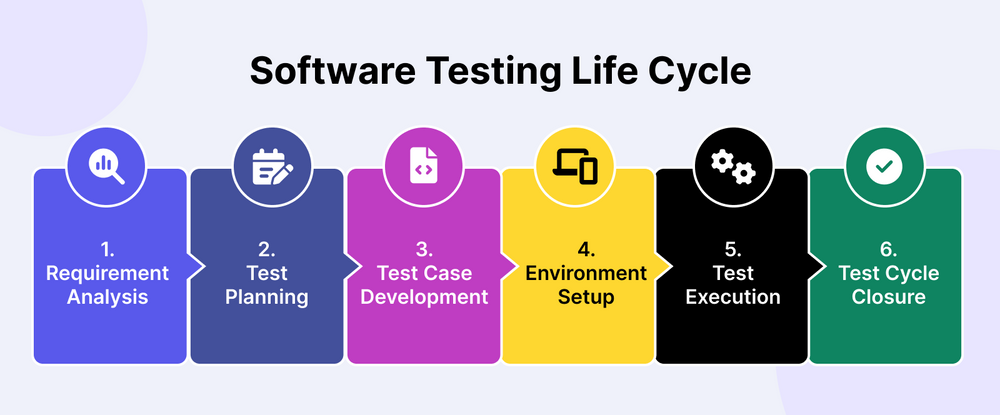Software Testing
What is Software Testing?
Definition:
Software testing automation involves the use of specialized tools, frameworks, and scripts to automate the testing process, ensuring the quality and reliability of software applications. It spans the entire software development life cycle, from unit testing to integration testing and user acceptance testing.
Analogy:
Think of software testing automation as a tireless quality control expert. Similar to a meticulous inspector checking every detail, software testing automation tools systematically examine code, identify bugs, and validate that the software meets specified requirements, allowing developers to focus on innovation and functionality.
Further Description:
Software testing automation encompasses various aspects of quality assurance, including:
Unit Testing Automation: Automated tools verify the correctness of individual units or components of the software, ensuring that each part functions as intended.
Integration Testing Automation: Automation is employed to test the interactions between different components or systems, ensuring seamless integration and identifying potential issues.
Functional Testing Automation: Automation tools validate that the software functions according to specified requirements, checking features, inputs, and outputs.
Performance Testing Automation: Tools automate the assessment of the software’s responsiveness, scalability, and overall performance under different conditions.
Regression Testing Automation: Automated tests ensure that new code changes do not adversely affect existing functionalities, helping maintain software stability.
User Interface (UI) Testing Automation: Automation is used to validate the graphical user interface, ensuring a consistent and user-friendly experience.
Why is Software Testing Automation Important?
Efficiency and Speed: Automation accelerates the testing process, allowing for quick feedback on code changes and faster release cycles.
Accuracy and Consistency: Automated tests execute predefined scenarios with precision, reducing the likelihood of human error and ensuring consistent test results.
Cost-Effectiveness: While initial setup may require investment, automation ultimately reduces testing costs by saving time and minimizing the need for manual testing resources.
Continuous Integration/Continuous Deployment (CI/CD) Support: Automated testing integrates seamlessly into CI/CD pipelines, ensuring that new code changes are thoroughly tested before deployment.
Examples and Usage:
Selenium: A widely-used open-source tool for automating web applications, Selenium supports various programming languages and browsers.
JUnit and TestNG:Frameworks for Java that facilitate unit testing, providing annotations and assertions for creating automated test cases.
Jenkins: An automation server that supports building, testing, and deploying software, integrating with various testing tools.
Appium: An open-source tool for automating mobile applications on both Android and iOS platforms.
Key Takeaways:
- Software testing automation employs tools and scripts to automate testing processes throughout the software development life cycle.
- It covers unit testing, integration testing, functional testing, performance testing, regression testing, and UI testing.
- Benefits include increased efficiency, accuracy, cost-effectiveness, and support for CI/CD practices.
- Examples of testing automation tools include Selenium, JUnit, TestNG, and Jenkins





